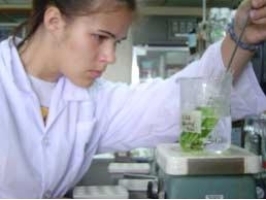
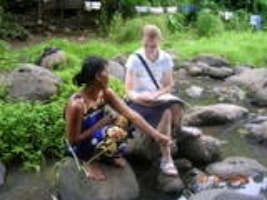
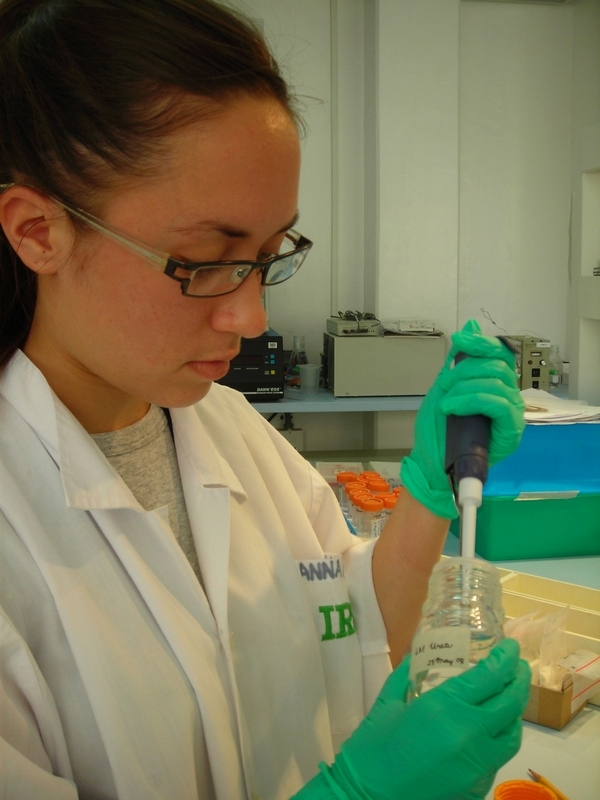
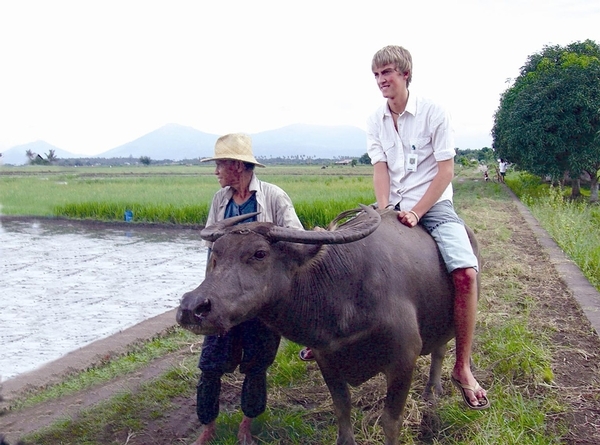
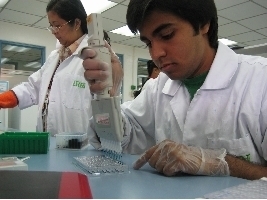
International Rice Research Institute
The International Rice Research Institute (IRRI) in Los Banos, Philippines has hosted seventeen high school interns since 1999.
Established in 1960, IRRI is a non-profit agricultural research center that is devoted to reducing poverty and hunger, improving the health of rice farmers and consumers, and ensuring that rice production is environmentally sustainable.
IRRI carries out research and development in rice-related policy; information and communication; genetic diversity; human health; environmentally sustainable practices; and rice breeding and production.
Headquartered outside of Manila, Philippines, IRRI has research centers in fifteen countries.
Interns at IRRI work alongside renowned international researchers and experts - like Dr. Mahabub Hossain, Dr. Rene Lafitte, Dr. John Bennet, and Dr. David Mackill - in the fields and villages of Tranca and Los Banos.
The students also have the opportunity to travel around Philippines with their host families and colleagues to see the Taal volcano, Magnetic Hill, Dampalit Falls, Paciano Rizal Shrine, Trace Aqua Sports Complex and Museum, Paciano Rizal Park, the White Beach, and the rice terraces of the Banaue mountains.

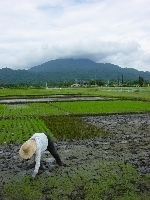
Philippines Specific Questions
Suggested Travel Link: https://travel.state.gov/content/travel/en/international-travel/International-Travel-Country-Information-Pages/Philippines.html
Visa Required: Tourist Visa Required for all stays longer than 30 days.
Passport: Required
Travelers Health & Vaccinations: Visit the CDC website at https://wwwnc.cdc.gov/travel/destinations/list
Embassies & Consultant Contact:
-
U.S. Embassy Manila - 1201 Roxas Boulevard manila, Philippines 1000
Telephone - +(63)(2)301-2000
Emergency - +(63)(2)3012000 x0
Geography: Refer back to “International Internship Sites”
Cellular apps (highly suggested to download prior to departure): US Embassy app,
Airline(s) the intern will be traveling through, and Whatsapp.
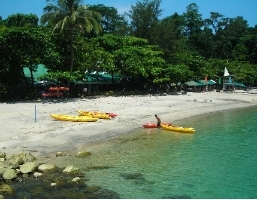
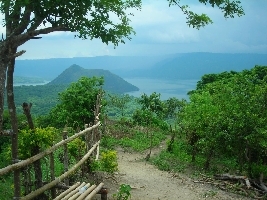
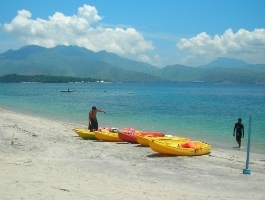
Images licensed by CC-BY-SA and GFDL (courtesy: )
Common Questions Asked of IRRI by the World food Prize Borlaug~Ruan Interns
Who will pick me up at the airport? Where exactly should I meet this person? How will I recognize this person? Who would I contact and at what phone number if my flight is behind schedule and extremely late in arriving?
The Philippines has three international airport terminals in Manila─the Ninoy Aquino International Airport (NAIA) Terminal 1, the Centennial Terminal 2, and NAIA Terminal 3.
You will disembark at the NAIA Terminal 1. Upon arrival, please proceed to the International Organizations Desk located at the arrival lobby.
You will be met by an IRRI travel agent.
What is the weather usually like during the period June through August?
It’s the rainy season, so it is warm and humid. Maximum temperature is about 90oF and minimum is about 75oF.
Describe the range of attire required during the internship:
We usually dress up smart casual, no sleeveless, shorts, or slippers (especially in the laboratories). You may want to monitor the weather forecast in Los Banos in http://www.accuweather.com/en/ph/los-banos/263798/weather-forecast/263798 as your guideline in choosing your clothing.
Is the dress code business or casual?
Dress is fairly casual, but revealing clothes will tend to attract unwanted attention. In the laboratory, covered shoes are required. The laboratories are air-conditioned so could be quite cool.
Are shorts allowed on and/or off campus?
Shorts are not uncommon in the Philippines, but they are not often worn at work.
Will there be a need for more formal clothing?
You may wish to bring clothes for an official dinner or similar occasion.
What clothing is culturally accepted/common inside and outside the research station for foreigners?
Light clothes, preferably cottons, are advisable. Jackets or sweaters are needed in upland areas like the mountain city of Baguio. Casual wear is the rule although formal parties may require a suit or Barong Tagalog for men and a dressy frock for ladies.
When visiting churches and mosques, it is well to remember that shorts or provocative dresses will be inappropriate.
General description of accommodations:
Dorm-style housing?Home-hosting with a family?
You will stay at the IRRI Dorm. Dorm amenities: twin sharing/double room with own bath. No refrigerator, no tv and no phone. Phone, refrigerator and TV are located at the dorm lounge area. There is air conditioning and wireless internet connection.
Individual or common bathrooms?I
Individual bathrooms.
Where are meals taken?
Meals maybe taken at the IRRI Cafeteria, Harrar Hall. The cafeteria is open from 6:30 am – 7:30 pm, everyday including Holidays and Sundays. We also have a coffee at Harrar Hall.However, this is only open from 7:30 am – 5:30 pm, Monday to Friday only.
Will there be other high school or college students living and working there this summer?
Yes we have other college students doing their BSc thesis or internship at IRRI. However, Mostly MSc and PhD students are residing in the IRRI dormitories.
Computer access/usage and telephone access
Is it advisable for me to bring a laptop computer with me?
Yes, wireless access is available in your dorm. You are encouraged to bring your laptop, if you have any. Aside from the dorm, we have several other wireless hotspots. This will be given to you during the orientation.
Will I have access to a work computer?
Yes, you will be given access to a work computer.
Will I receive an orientation to local customs, where I should and should not go, wise safety practice for the area, etc.? Would such guidance/mentoring throughout the summer come from a person other than my direct project supervisor? If so, who is the person and how do I contact her/him?
The IRRI Education is in- charge of the Interns’ orientation.
Is the workweek Monday through Friday?
Yes, working days are from Monday to Friday, 8am-5pm, but you can work after 5:00 and during weekends if you find it necessary. Always remember to coordinate after office and weekend schedules with your supervisor and/or with person in-charge of the facilities where you will conduct your work.
How can I access currency? (Is there a bank near the center?)
There are many money changers & banks in Los Banos. There is an ATM at IRRI and also our cashier’s office that can convert dollar cheques to pesos (limited schedule, 2 afternoons in a week only- Tuesday and Thursdays, 1:00 pm – 4:00 pm). You might wish to change some dollars to pesos at the airport, so you will have cash upon arrival. The ATM at IRRI only works if your card has a cirrus symbol. For an international account, the maximum it will dispense is equal to about $100, and the fee is about $10 for that transaction. It is much better to bring USD and exchange them . If you plan to use the ATMs, it is much easier to find ATMs that take a Mastercard versus a Visa card.
In case of a medical need or emergency, is there a clinic or medical facility near the place I will be working?
There is a clinic inside IRRI , which is open from 7am – 5 pm from Monday to Friday. Hospitals and doctors are available in Los Baños. For any serious medical condition, an IRRI ambulance can provide transportation to the larger hospitals in Manila. If you need any regular medication (e.g. for asthma or allergies), you should bring it with you in case it is not available in the Philippines. Please also refer to the IRRI Emergency FAQ for more details.
Student Research Projects
Optimizing Rice-based Systems in Odisha, India (2022)
Mapping Genes Influencing Amylose Concentration in Oryza sativa L. (Rice Crops) (2022)
Cordillera Heirloom Rice: At the Crossroads of Commodification (2019)
The Impacts of Enhancing Traditional Rice Production in the Upland Regions of the Philippines (2018)
Optimization of CAPS assay for selected Milagrosa accessions (2016)
An Overview of Biofortification of Zinc in Rice (2015)
Analyzing the Rice Preferences of Major Actors in the Rice Value Chain (2014)
Investigating the Effects of Heat Stress During Different Stages of Rice Production (2012)
Evaluating the Impacts of Water-Saving Technologies on the Lives of Philippine Farmers (2011)
Identifying Rice Varieties for Smallholders in the Philippines (2010)
Gelatinization Temperature in Improved Rice Varieties (2009)
Challenges and Solutions for Rice in Rain-Fed Environments (2008)
Exploring Agricultural Development in the Philippines and Bangladesh (2007)
The Impact of Micro-Credit on the Rural Poor (2006)
Comprehending the Livelihood Strategies of Rural Villagers (2005)
Examining Drought Resistance in Rice Plants (2004)
Testing for the Presence of Starch in Rice Leaves (2003)
Preventing Faulty Rice Research by Mapping Rice Genes (2000)
Looking Towards the Next Century of Food Security - Beyond Rice Research (1999)


